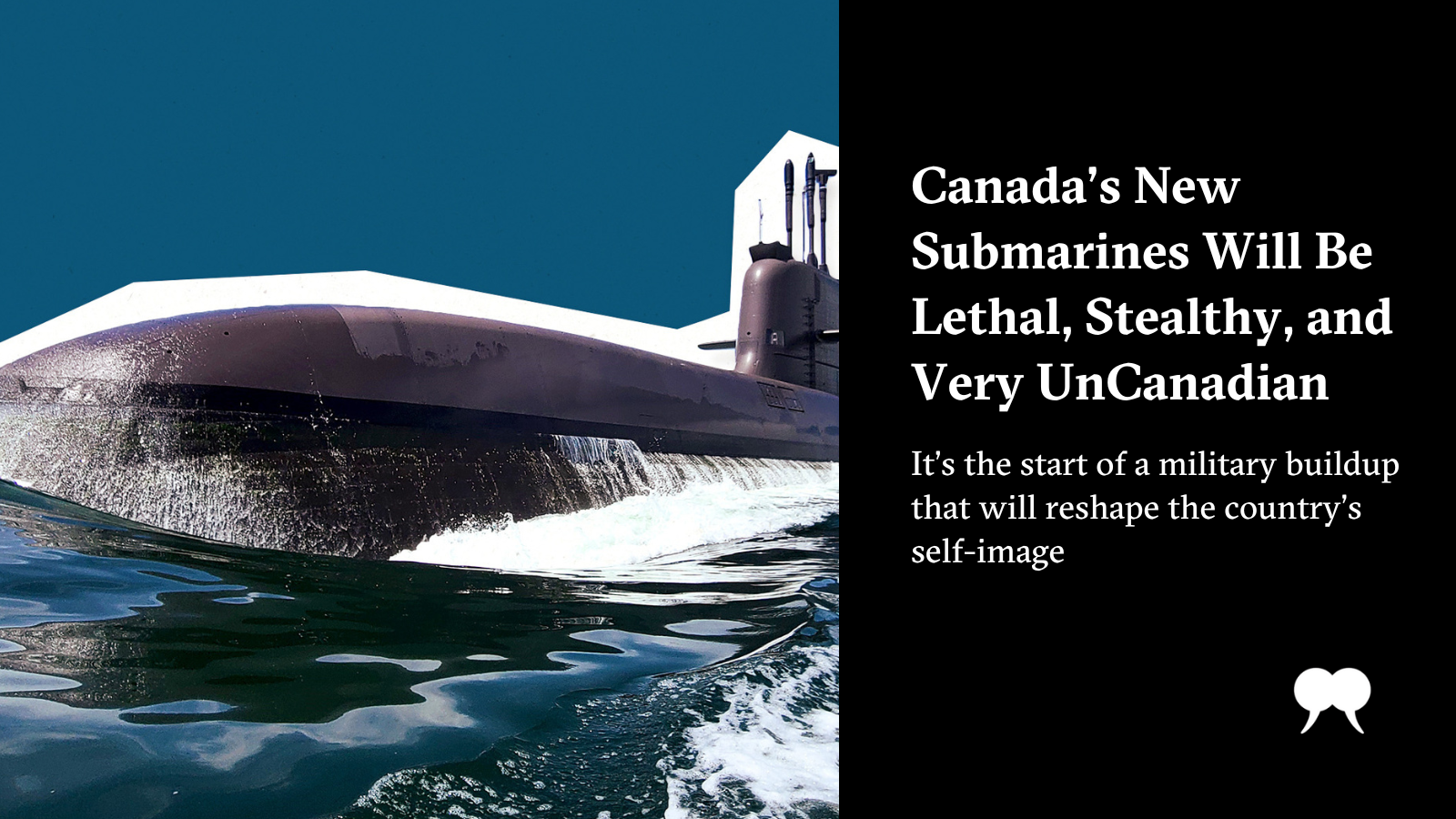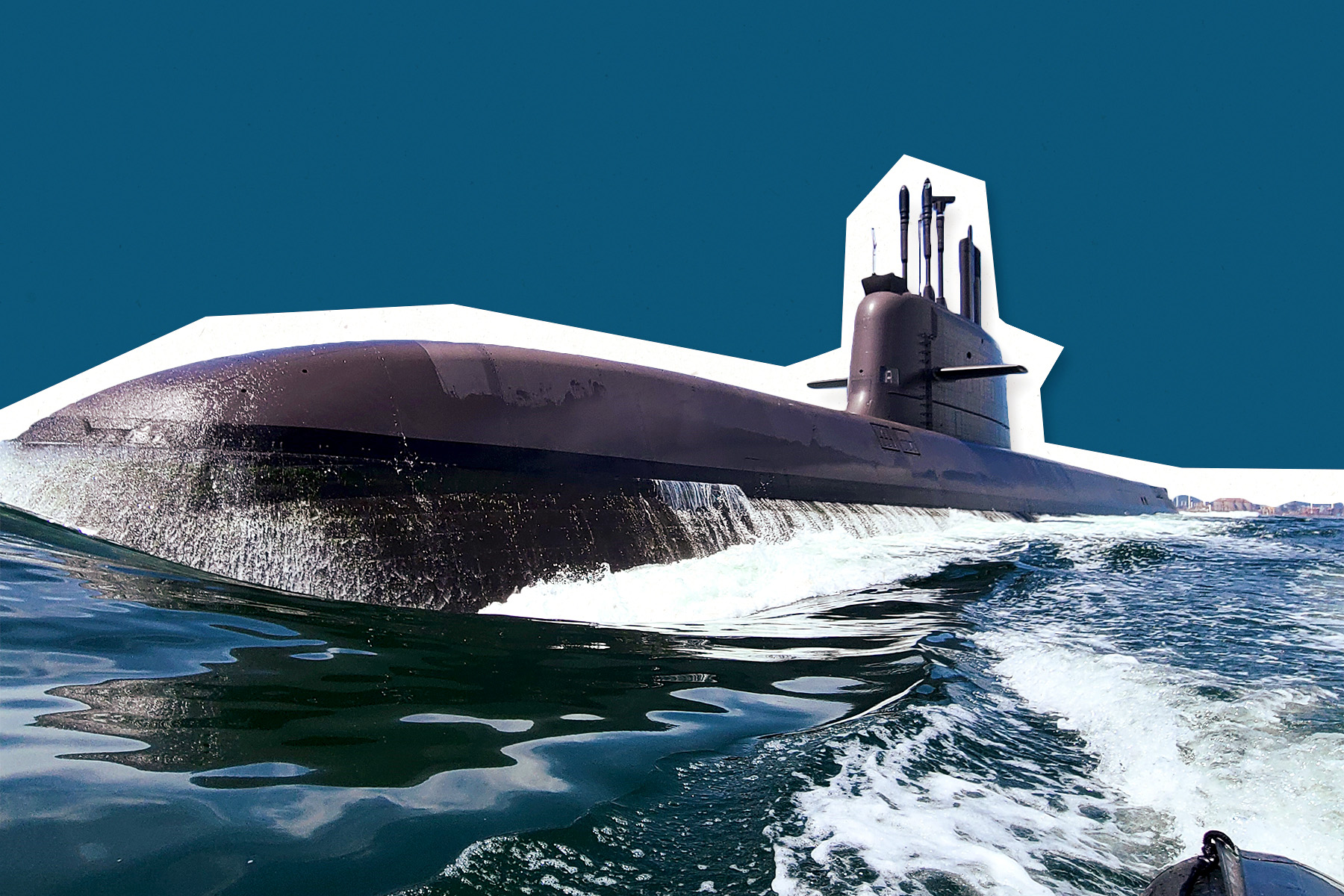Another great article from the Walrus....
It’s the start of a military buildup that will reshape the country’s self-image

thewalrus.ca
....
Highlights
" Carney’s commitment to the new NATO target of 5 percent of GDP for defence and defence-related infrastructure by 2035 will require annual expenditures of up to $150 billion.
" The result will be a country forced to confront the reality of projecting power. Submarines embody this. Stealthy and lethal, a modern submarine can clandestinely watch and threaten a potential enemy. Simply knowing that Canada has such weaponry forces an adversary nation to assume that they could be present anytime, anywhere."
.....
" In March of this year, the commander of the RCN, Vice Admiral Angus Topshee, made some comments to an Ottawa audience which neatly sum up where the submarine purchase will take us as a country. Given how rarely senior military leaders are so open about these issues, his words are worth quoting at length. The new vessels, he said, represent:
" "A very unCanadian capability, and that’s the ability to stealthily approach another coast and hold them at risk. Because in this world, it’s not enough to sit back and wait for someone to attack us and hope that we can defeat that attack. We need to be capable of deterring that attack and, potentially, retaliating against that attack to make sure that we can protect ourselves and hold them at risk, just as they hold us at risk. It’s a different world. It’s a different way of thinking for us in Canada."
"Are we ready for what this means?"
....
" What has also arrived, to refer back to Vice Admiral Topshee’s comments, is a willingness to admit, from the outset, that these submarines are to be employed as lethal weapons. Also of note is his admission that we will not simply be using them to defend Canadian waters. Though that is their primary purpose, we also intend them to be used to threaten others who we believe are threatening us."
...
" This points to a host of bigger issues. It’s true that Canadians are more alert to the vulnerabilities in our north. In a 2024 Nanos poll, most said they supported acquiring submarines to defend the country. But it’s not clear that Canadians are used to thinking of themselves as a serious military power. It will require some significant leadership on the part of our politicians and military leaders to take the public consciousness into this space.
" And, of course, it’s not only about submarines and the larger navy. This will also be true of the army and the air force."
...
" Are we ready for this? Do we understand that we’re on the verge of being able to respond to threats ourselves, instead of depending on the US to do it for us? Do we understand that with this capability comes an expectation from allies and adversaries alike that we will be prepared to use it? Is our political and diplomatic class ready to think of Canada as something other than a small, lightly armed junior ally—one that’s long been free to say what it wants without any real expectation of having to act?
" Though we have not been leading peacekeepers for a very long time, many Canadians still consider Canada primarily in that light—when they think about defence-related matters at all. But peacekeeping no longer means, and has not meant for a long time, a few lightly armed troops sitting on an internationally agreed line between combatants who accept their presence. It means fighting your way into messy civil wars in faraway places and enforcing ceasefires and peace agreements in the face of serious opposition. We will soon have the capability to play a leading role in such missions. Will we act on it? "




